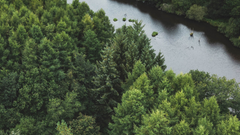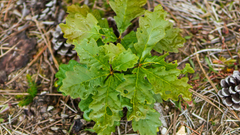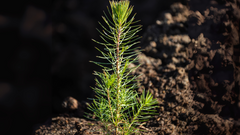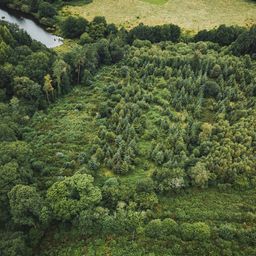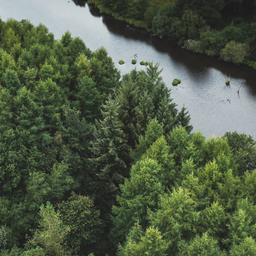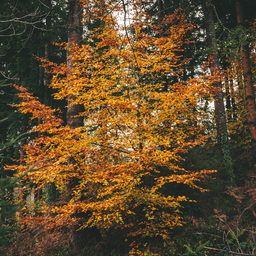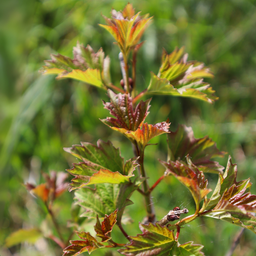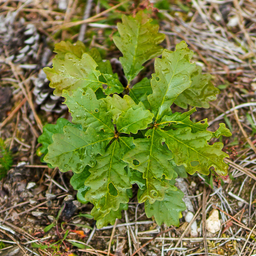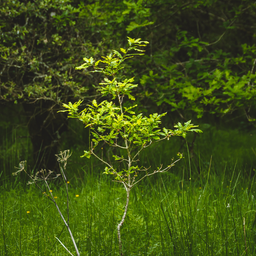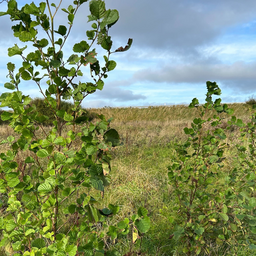Apr 29, 2024
From Rocky Soil to Forest Revival: Planting the Syndicat Forest
Following a clear-cut by the previous owner, we decided to replant with a variety of species.
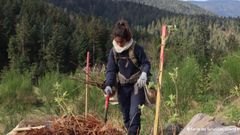
Between an episode of snow and a hailstorm, we completed the necessary plantings in the Syndicat's forest, located at an altitude of some 800 meters in the Vosges in Northeast France. By mid-April 2024, around 3 hectares of clear-cut forest had been reforested and protected from attack by game.
Impossible ground preparation at the Syndicat
Our forester Arnaud De Grave has an uncanny knack for devising the right plans, so much so that after the sporty preparation of the soil in the Ajoux forest, he had to deal with that of the Syndicat forest. Unfortunately, this time, he was told that the machines wouldn't fit and that preparing the soil for planting would be too expensive.
Soil preparation generally consists of windrowing slash, uprooting and shredding adventitious vegetation (brambles, ferns, broom, etc.) and then lightly loosening the soil so that the young plants can easily be put into the ground by the planters without any exhausting work for them, while at the same time encouraging the trees to take root.
Fortunately, since our forest manager has more than one trick up his sleeve and his brain isn't short of oxygen, he found a team of seasoned planters ready to tackle the difficult terrain.
It's worth noting that EcoTree's 'raison d'être' (red. reason to exist) is precisely in dealing with what other forest management companies don't concern themselves with: difficult terrain, seemingly inextricable situations, and heavily damaged forests. The incredible project led by Arnaud De Grave is, therefore, fully in line with our mission.

What species are planted at the Syndicat?
We acquired the Syndicat forest in 2022, covering just under 6 hectares. It was planted exclusively with conifers, and just over 3 hectares of spruce were cut down by its former owner following a deadly attack by bark beetles. On the southern slope, on the other side of a small stream, a parcel of fir and spruce remains in good health.
Our forest manager has decided to conserve the natural regeneration of spruce and fir, beech and oak, and to add two main species: sessile oak and laricio pine, mixed with Byzantine hazel. He gambled that these tree species, adapted to the soil, would also be adapted to the warmer, drier climatic conditions in the years to come.
This is why he has chosen two objective species (oak and laricio pine). As long as the cold, rainy conditions persist, they may take some time to establish themselves, but they should be perfectly adapted to the weather forecasts for decades. It's a bold gamble, to be sure, but given the speed of climate change, we need to experiment.

How were the plantings carried out?
Between April 8 and 14, 2024, a team of professional planters (one Quebecer, one Englishman and one German) led by Cyr Barrois from La Pelle de la forêt set about planting over 5,000 trees.
Lines of Sessile oak and Byzantine hazel were planted on the slope upstream from the creek, while lines of larch pine and Byzantine hazel were planted on the higher, drier slopes. The plantings took the workers much longer than usual, as the soil had not been worked, and they had to attack the sowing of grass before they could reach the soil.
When the planting was complete, we planted a stake next to each of the trees, except for the pines coated with Trico, to protect the young plants individually from the ravages of the game, which swarms in the area. We hadn't even finished protecting them when the hail started. The trees have been watered, but now they'll need some sun.
Keep on reading!
- We are planting 40.000 trees on the heart-shaped island, Oroe in Denmark
- Our first wetland restoration project has been launched in Germany
- What is sustainable forestry and what are the benefits?
